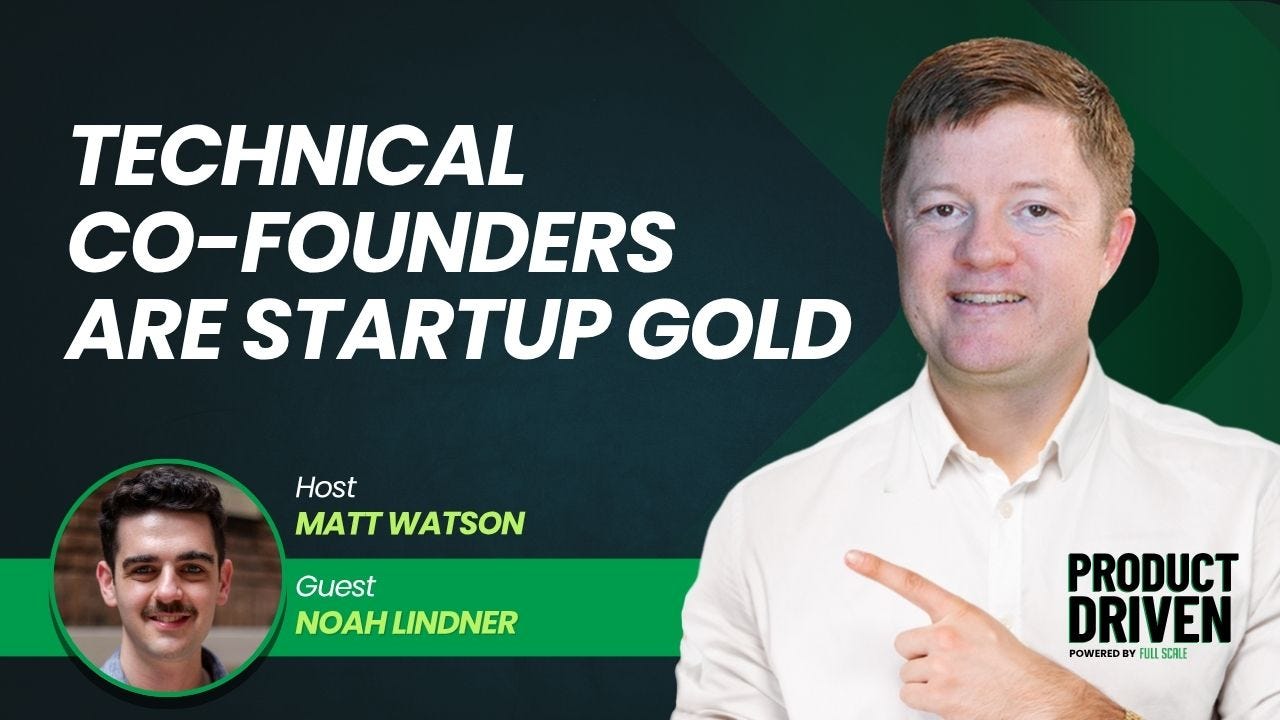How I Vet a Technical Co-Founder
When a founder tells me they “just need a CTO,” my first question is which one.
The job title covers everything from enterprise deal-maker to scrappy full-stack hacker, yet an early-stage startup can only afford one hire who also feels the pain of the customer, sees the product end-to-end, and can ship without a backlog full of marching orders .
After two decades building, scaling, and investing in software companies, I’ve learned to look past résumés and whiteboard riddles. Three signals tell me I’ve met a true technical co-founder—not just a coder looking for equity.
1. Owns the Product Vision, Not Just the Architecture
A co-founder has an opinion about what we’re building before we debate how. They can describe the user, the outcome, and where Version 1.0 ends—even if the spec is a napkin. If they can’t, they’re a senior engineer, not my partner.
I dig for product instinct in the conversation:
Tell me about a feature you killed after talking to customers.
What metric changed when it shipped?
Where did the idea come from—sales call, support ticket, or you?
Great engineers light up when they can explain why before they code .
2. Absorbs the Domain at Warp Speed
Startups rarely attack broad consumer markets. More often it’s “lead-gen for florists” or some niche no outsider has mapped. I need a co-founder who can parachute into that vertical, see the workflow friction, and start sketching a solution within weeks.
In vertical SaaS, the business founder supplies the relationships, but the technical partner must “slot in and quickly co-create the product.
I ask them to walk me through another industry they picked up fast. If they can outline the jargon, the incumbent tools, and three obvious bugs in the status quo, they pass.
3. Stretches Every Idea One Notch Further
Early designs are half-baked on purpose.
I want someone who challenges them, not just executes. The bar: you hand them an outline; they hand back a sharper concept than you imagined.
In practice that looks like:
Turning my rough flow into a user-journey doc overnight.
Proposing a simpler data model that unlocks v2 features.
Flagging the one killer metric we’re not instrumenting.
A CTO who “can come in, quickly understand the product, bring ideas, and take them to the next level” is the multiplier .
Red Flags I Won’t Ignore
🚩Needs task breakdowns
If I’m still writing tickets, we’re moving at intern speed
🚩Treats domain as a black box
Vertical SaaS lives or dies on nuance they must absorb
🚩Optimizes code purity before value
Shipping late is fatal. Ugly code that proves value can be refactored
My Four-Question Screening Checklist
What user problem should we solve first. Why?
How would you validate traction before we write 10k lines of code?
Walk me through a time you reshaped a roadmap after new insight.
If you owned 50 % of this company, what would you not build?
Candidates who think like owners reveal themselves fast.
Product thinkers show up in how they attack ambiguous problems, not in algorithm trivia.
Putting It Together
A technical co-founder must wear two of the four engineering hats—product and technical—from day one; strategy and operations can wait until we have payroll for a VP . When I find someone who:
Speaks in user outcomes,
Learns the industry faster than I can schedule a discovery call, and
Makes my ideas better on contact,
I write the offer.
Anything less, and I’m just hiring another developer with founder-level risk and none of the upside.
🎧 Want the full back-and-forth on spotting “startup gold” co-founders?
I unpack this topic with Noah Lindner on the latest Product Driven podcast episode, “Technical Co-Founders Are Startup Gold.”

